Rejuvenation Roundup October 2021
- Plenty of Ending Age-Related Diseases talks and plenty of research were published last month.

Yesterday was a day for ghosts, demons, monsters, and spooks of all sorts, but today, we go back to dealing with something even scarier: aging. Here’s an overview of what’s happened on the rejuvenation front in October.
LEAF News
EARD2021
Allison Duettmann on Existential Hope: Elena Milova interviewed Allison Duettmann on how far rejuvenation biotechnology has come and what can be done to accelerate its development.
Lifespan News
Anyone Can Fight Aging: Ryan O’Shea discusses how a background in biology is not always necessary to join the fight against aging.
Interviews
 NMN vs. NAD vs. NR With Dr. Brad Stanfield: Dr. Brad Stanfield discusses the various forms of niacin along with NAD+ boosters such as NR and NMN, and he touches upon supplements, rapamycin, and other facets of the longevity world.
NMN vs. NAD vs. NR With Dr. Brad Stanfield: Dr. Brad Stanfield discusses the various forms of niacin along with NAD+ boosters such as NR and NMN, and he touches upon supplements, rapamycin, and other facets of the longevity world.
Dylan Livingston: Increasing Healthy Lifespan Is Bipartisan: Dylan Livingston is the founder and president of the Alliance for Longevity Initiatives, which aims to fill an important niche as a non-profit that would educate American politicians on life extension and promote policy changes beneficial for our cause.
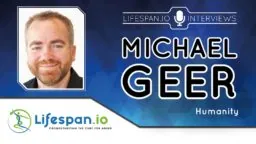 Michael Geer: “Digital Markers Are the Future”: Michael Geer and Pete Ward have recently launched the app Humanity, which offers its users ways to monitor their rates of aging and slow those rates down. We talked to Michael about why apps like this are important and went into the details of how Humanity works.
Michael Geer: “Digital Markers Are the Future”: Michael Geer and Pete Ward have recently launched the app Humanity, which offers its users ways to monitor their rates of aging and slow those rates down. We talked to Michael about why apps like this are important and went into the details of how Humanity works.
Rejuvenation Roundup Podcast
Ryan O’Shea of Future Grind hosts this month’s podcast, showcasing the events and research discussed here.
Education
What is Rapamycin? A Summary of Rapamycin: We take a look at rapamycin, a well-known antibiotic and influencer of metabolism, and why some researchers think it could be useful in combating aging.
Advocacy and Analysis
 Cellular Senescence: It’s Complicated, but There’s Hope: Two of the most prominent experts in the field, Cristopher D. Wiley and Judith Campisi, have published a review of cellular senescence in the context of metabolism.
Cellular Senescence: It’s Complicated, but There’s Hope: Two of the most prominent experts in the field, Cristopher D. Wiley and Judith Campisi, have published a review of cellular senescence in the context of metabolism.
A Review of Clinical Trials of Senolytics: A team of researchers, including Dr. James Kirkland of Mayo Clinic, has published a review of the ongoing efforts of researchers to clear senescent cells through senolytics.
Research Roundup
 Some Mutations Increase Cancer Risk by Making Cells Older: Cells from the breasts of women with mutations that increase their risk of breast cancer show signs of accelerated aging, which may make these cells worse at suppressing cancer development
Some Mutations Increase Cancer Risk by Making Cells Older: Cells from the breasts of women with mutations that increase their risk of breast cancer show signs of accelerated aging, which may make these cells worse at suppressing cancer development
Engineering Anti-Inflammatory Cells to Fight Arthritis: A team of researchers has described how a scaffold containing genetically engineered induced pluripotent stem cells (iPSCs) can reduce symptoms in a mouse model of rheumatoid arthritis.
 Exercise Burns Fewer Calories Than Previously Thought: Researchers have proven that our bodies partially compensate for calories burned during exercise by cutting energy expenditure on vital functions.
Exercise Burns Fewer Calories Than Previously Thought: Researchers have proven that our bodies partially compensate for calories burned during exercise by cutting energy expenditure on vital functions.
Matching an Epigenetic Clock to Physical Function: A new, three-year study published in The Journals of Gerontology: Series A examined the relationship between epigenetic clocks and physical performance in older women.
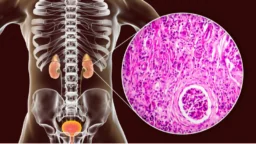 How a Protein Is Linked to Kidney Fibrosis With Age: Publishing in Aging, a team of researchers has reported that periostin, a protein that aids in development during the embryonic stage, is linked to kidney problems related to lipid metabolism in adults.
How a Protein Is Linked to Kidney Fibrosis With Age: Publishing in Aging, a team of researchers has reported that periostin, a protein that aids in development during the embryonic stage, is linked to kidney problems related to lipid metabolism in adults.
The Link Between Brain Age and Blood Pressure: Researchers publishing in Frontiers in Aging Neuroscience have discovered that blood pressure is directly linked to brain aging; even a little bit of high blood pressure causes a commensurate amount of brain aging.
 Escaping Stem Cells Exacerbate Age-Related Hair Loss: Scientists showed that hair loss happens partially as a result of stem cells escaping from hair follicles. They also shot a stunning time-lapse video of the process.
Escaping Stem Cells Exacerbate Age-Related Hair Loss: Scientists showed that hair loss happens partially as a result of stem cells escaping from hair follicles. They also shot a stunning time-lapse video of the process.
The Genetic Basis of Telomere Length: A new study in Nature Genetics has further illuminated the genetic regulation of telomere length and what implications it may have for various diseases and longevity.
 A Path Towards Restoring Thymic Function: A study published in Cell Reports shows how the thymus is stimulated to repair itself when dying thymocytes are depleted, paving the way towards novel methods of thymic regeneration.
A Path Towards Restoring Thymic Function: A study published in Cell Reports shows how the thymus is stimulated to repair itself when dying thymocytes are depleted, paving the way towards novel methods of thymic regeneration.
Allele Associated With Alzheimer’s Improves Cognition: Scientists have demonstrated that the Alzheimer’s-linked allele APOE e4 helps cognition earlier in life prior to the onset of the disease. This might point at a possible reason for some aspects of aging.
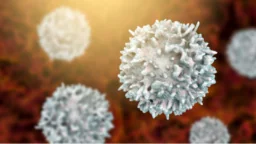 NR Temporarily Improves Immune Function in Mice: A study published in the Nature journal Aging and Mechanisms of Disease has shown that supplementation with nicotinamide riboside (NR) substantially improves the immune systems of older mice due to its effects on stem cell fate.
NR Temporarily Improves Immune Function in Mice: A study published in the Nature journal Aging and Mechanisms of Disease has shown that supplementation with nicotinamide riboside (NR) substantially improves the immune systems of older mice due to its effects on stem cell fate.
Scientists Propose a New Targeted Senolytic: A group of researchers has developed a delivery system that identifies senescent cells and injects them with a deadly compound.
 Lack of Klotho Associated With All-Cause Mortality: A recent study in The Journals of Gerontology, Series A has associated low klotho levels with mortality in Americans over the age of 40.
Lack of Klotho Associated With All-Cause Mortality: A recent study in The Journals of Gerontology, Series A has associated low klotho levels with mortality in Americans over the age of 40.
A Link Between NAD+, AMPK, and Alzheimer’s: Researchers publishing in Aging have discovered that an energy metabolism compound is associated with a protein that suppresses amyloid beta in a mouse model of Alzheimer’s.
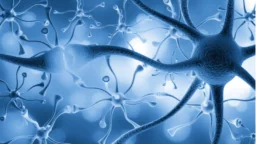 New Mechanism of Neurodegeneration Identified: Researchers have identified an important mechanism of neurodegeneration that may be useful in treating age-related diseases such as Alzheimer’s and dementia.
New Mechanism of Neurodegeneration Identified: Researchers have identified an important mechanism of neurodegeneration that may be useful in treating age-related diseases such as Alzheimer’s and dementia.
Resveratrol Aids Spinal Cord Regeneration in Rats: A team of researchers publishing in Aging have shown that resveratrol reduces inflammation and partially restores function in a rat model of spinal injury.
 Potential Mechanisms Behind Skin Aging Identified: The latest research out of the Journal of Cell Biology shines a light on why our skin loses its healing abilities as we age.
Potential Mechanisms Behind Skin Aging Identified: The latest research out of the Journal of Cell Biology shines a light on why our skin loses its healing abilities as we age.
Fortilin Protects Against Cell Death in the Heart: Researchers have found that the protein fortilin, which is abundant in the heart, protects it from failure by blocking apoptotic activity.
Fasting drives the effects of a calorie-restricted diet in mice: These researchers show that daily prolonged fasting, and not solely reduced caloric intake, is likely responsible for the metabolic and geroprotective benefits of a CR diet.
Research review shows intermittent fasting works for weight loss, health changes: This review looked at over 25 research studies involving three types of intermittent fasting, and it includes a summary of practical considerations for people who may want to try intermittent fasting.
Innate immune remodeling by short-term intensive fasting: These results suggest that short-term intensive fasting boost immune function, in particular innate immune function, at least in part by remodeling leukocytes expression profile.
Restriction of Dietary Advanced Glycation End Products Changes Metabolome and Lipidome: This study was conducted on non-diabetic peritoneal dialysis patients, but common patterns with previous metabolic pathways implicated in insulin resistance and obesity suggests that this approach could also be effective in other populations.
Modulation of Telomere Length by Mediterranean Diet, Caloric Restriction, and Exercise: These results show that the Mediterranean diet could have an important role in preventing telomere shortening, but calorie restriction and exercise promotion did not provide an additional advantage concerning telomere length on people who had been eating this diet for a year.
The effects of resveratrol on glycemic control and cardiometabolic parameters in patients with type 2 diabetes: This systematic review and meta-analysis, including 17 RCTs with a total of 871 diabetic patients, showed that resveratrol was superior to placebo on fasting blood glucose (FBG) and total cholesterol (TC)
Increasing Post-Digestive Solubility of Curcumin Improves Oral Bioavailability: The improved oral bioavailability of micellar curcumin, and to a lesser extent of ?-cyclodextrin curcumin complexes, appears to be facilitated by increased post-digestive stability and solubility rather than other factors.
The effects of human umbilical cord mesenchymal stem cell transplantation on female fertility restoration in mice: These cells may represent an effective treatment for restoring female fertility through recovery from chemotherapy-induced damage and rescue of female reproductive organs from the effects of aging.
Mitoepigenetics: An intriguing regulatory layer in aging and metabolic-related diseases: Uncovering the regulatory role of mitoepigenetics will help to understand the underlying mechanisms of mitochondrial dysfunction and provide novel strategies for delaying aging and preventing metabolic-related diseases.
Anti-aging and anti-oxidant activities of murine short interspersed nuclear element antisense RNA: Short interspersed nuclear elements (SINEs) play a key role in regulating gene expression, and SINE RNAs are involved in age-related diseases. The researchers found that treatment with B1as RNA improved stamina and promoted hair regrowth in aged mice.
The tumor suppression theory of aging: This review holds that most phenotypes of aging are the product of tumor suppression via stem cell senescence, apoptosis and differentiation.
News Nuggets
Maximon Launches Longevity Co-Investment Fund: The venture capitalist firm Maximon has announced a new longevity-focused fund that focuses on financing early-stage biotechnology companies that increase human healthspan. The firm intends to invest 100 million Swiss francs into such companies.
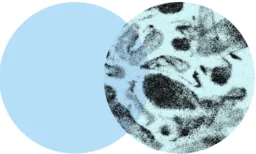 $70 Million Collaboration to Redefine Aging Research: The Astera Institute has announced that it will be collaborating with the Buck Institute on its Rejuvenome project. The project is a focused research organization (FRO), a new model of organization that is laser-focused on a specific scientific challenge.
$70 Million Collaboration to Redefine Aging Research: The Astera Institute has announced that it will be collaborating with the Buck Institute on its Rejuvenome project. The project is a focused research organization (FRO), a new model of organization that is laser-focused on a specific scientific challenge.







